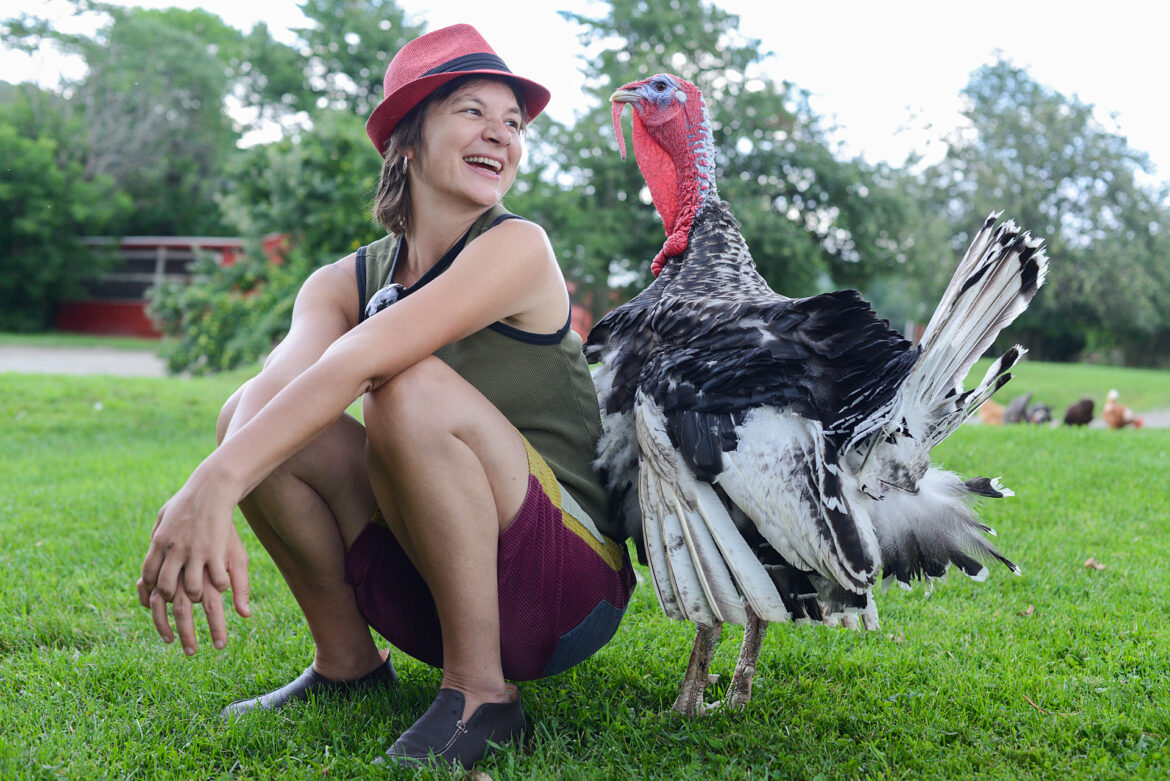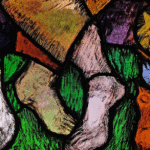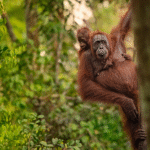Every November, millions of people around the world take part in World Vegan Month — a time to celebrate plant-based living and to reflect on our relationship with animals and the planet. For Christians, it offers more than a dietary challenge or lifestyle trend. It’s an opportunity to rediscover a deep current of compassion running through Scripture — a call to live in greater harmony with all God’s creatures.
Created for peace: animals in God’s story
From the very first chapter of Genesis, animals are not an afterthought but integral to creation’s goodness. God delights in the living world, blessing the animals and calling them “good” before humanity ever arrives on the scene. When humankind is created and given dominion over the earth, the same passage also sets a boundary — humans are to eat from the plants and trees (Genesis 1:29). Dominion, therefore, cannot mean domination. It is stewardship rooted in service, responsibility, and reverence.
After the Flood, God renews His covenant not only with Noah but with “every living creature of all flesh” (Genesis 9:12). The rainbow covenant is striking in its scope: it embraces sparrow and serpent, ox and whale, as well as humankind. God’s promises extend beyond the human family, revealing that animals are included in the moral and spiritual concern of the Creator.
The prophets envision the same truth in the language of hope. Isaiah imagines a time when “the wolf shall dwell with the lamb” and the earth shall be “full of the knowledge of the Lord” (Isaiah 11). This peaceable vision — echoed in Hosea and Revelation — portrays creation restored to its original harmony. In that kingdom, predation and fear are no more. To live toward such a vision is to align ourselves with God’s ultimate will for creation: reconciliation, not exploitation.
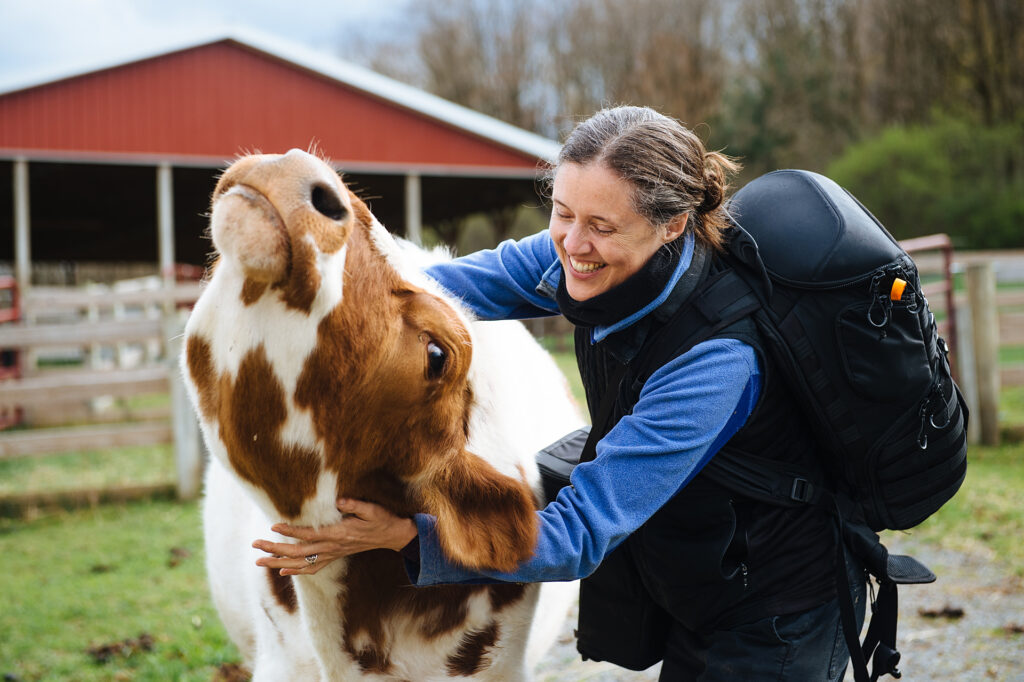
Christ and the creatures
Jesus’ ministry embodies that reconciling love. When challenged about healing on the Sabbath, He reminds His critics that anyone would rescue an animal fallen into a pit — for mercy outweighs rule-keeping (Matthew 12:11). His teaching assumes compassion for animals as natural and obvious. Elsewhere He points to God’s care for even the smallest of birds: “Not one of them is forgotten before God.”
The Lord’s frequent use of animal imagery — sheep, birds, vines, foxes — rests upon the real worth of those creatures. His description of Himself as the Good Shepherd presupposes that shepherds are meant to love and protect their flocks. A metaphor that comforted His listeners only makes sense if compassion for animals was itself a moral good. The shepherd who lays down his life for the sheep reflects divine love that extends through all living beings.
Throughout Christian history, this theme of compassion has never been lost. St Francis of Assisi spoke tenderly of “our brothers the birds” and called the sun, moon, and animals his kin. St Isaac the Syrian wrote that a merciful heart “burns with love for all creation: for people, for birds, for animals, even for demons.” More recently, C. S. Lewis condemned needless cruelty to animals as a betrayal of Christian conscience, reminding his readers that sentience itself demands moral regard.
In all these voices runs a common conviction: to follow Christ is to grow in mercy, and mercy cannot be confined to our own species.
Naming the wound
If the biblical and spiritual vision is one of harmony, the reality of modern animal agriculture reveals how far we have strayed. Each year tens of billions of land animals — and far more fish — are bred and slaughtered in industrial systems that prioritise profit over compassion.
Hens are confined to cages so small they cannot spread their wings. Pigs are kept in metal crates where they cannot turn around. Chickens are bred to grow so rapidly their legs buckle under their own weight. Many animals endure painful mutilations without anaesthetic and suffer immense stress and illness before slaughter.
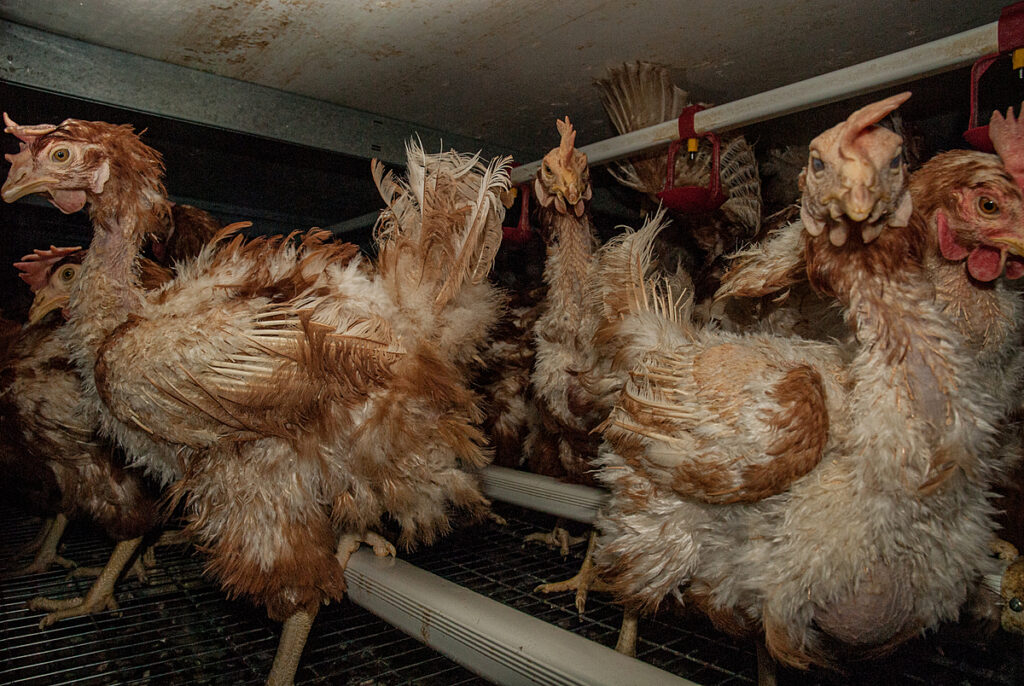
Even those who rarely think about animal welfare instinctively recoil from such scenes. As philosopher Alastair Norcross once noted, if any neighbour were discovered keeping puppies in such conditions, the community would be horrified. Yet these same methods are routinely accepted when the victims are chickens or pigs.
Factory farming also harms people: it damages the environment, spreads zoonotic disease, and leaves workers traumatised by the conditions they witness. As Christians called to love both neighbour and creation, we cannot turn away. To inflict suffering on sentient creatures, when alternatives abound, contradicts the very heart of the Gospel.
Practising mercy this World Vegan Month
World Vegan Month offers a simple invitation: to align our daily habits more closely with our faith. Mercy can begin at the table.
Personally, you might try a vegan month as an act of discipleship — a spiritual discipline that joins compassion with gratitude. It needn’t be about perfection, but intention: choosing foods that honour life, seeking nourishment without harm, and discovering that plant-based meals can be joyful, abundant, and good for body and soul.
Within households and churches, November can become a season of creative hospitality:
- Host a plant-rich bring-and-share lunch or fellowship meal that celebrates God’s provision from the earth.
- Share vegan recipes through church newsletters or social media.
- Offer prayers of thanksgiving for creation and blessings for animals, echoing the covenant with “all flesh.”
- Encourage sermons or study groups exploring the biblical vision of peace between species.
Such practices can help Christians see that food choices are not trivial but deeply spiritual — expressions of love, justice and hope.
At an institutional level, churches and Christian organisations might review catering policies or move towards “default-veg” events where plant-based options are the norm. They can champion sustainable food systems, support local growers, and speak prophetically about compassion in agriculture. In a world where the poor are often most harmed by environmental damage, these steps also serve human justice.

A witness to the peaceable kingdom
Christianity has always proclaimed that creation is not ours to consume, but God’s to cherish. Each act of mercy, each choice to eat or live more gently, is a small sign of the kingdom Christ proclaimed — a world where every creature has its place and none are forgotten.
This November, as the wider world celebrates World Vegan Month, the Church has a chance to bear distinctive witness: to live out the covenant of peace with all living things. Our plates can become altars of thanksgiving; our meals, signs of God’s future. In turning away from unnecessary cruelty, we turn toward the One whose mercy is over all His works.
As the psalmist writes, “The Lord is good to all; His compassion is over all that He has made.” (Psalm 145:9)
May this compassion guide our hearts, our tables, and our witness — not only this month, but always.


